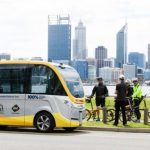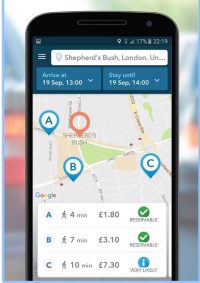5 key technologies of a smart city
5 key technologies of a smart city

People are increasingly migrating from rural to urban areas. By 2050, about 86 percent of people in developed countries and 64 percent of people in developing countries are expected to live in cities. Because cities will absorb future population growth, it is crucial to use resources more efficiently. How will smart city technology make the urbanization process as smooth as possible?
1. Smart energy
 Smart energy systems will monitor and control energy usage to more efficiently manage and conserve energy. Cisco estimates that cities that run on information can improve their energy efficiency by 30 percent within 20 years. By using renewable energy sources, manage water supply and have a waste management system, cities can reduce pollution and use less energy.
Smart energy systems will monitor and control energy usage to more efficiently manage and conserve energy. Cisco estimates that cities that run on information can improve their energy efficiency by 30 percent within 20 years. By using renewable energy sources, manage water supply and have a waste management system, cities can reduce pollution and use less energy.
2. Smart mobility
Smart mobility strives to find more sustainable transport options. Deloitte reported that an average American is stuck about 34 hours in traffic every year. With rapidly growing cities, new transportation solutions need to be developed to keep mobility dynamic. This could save the  US government for about 124 billion dollars every year. Walking, cycling and combined mobility are a few of the solutions that partially could solve the problem. By conducting big data drive projects, information can be gathered to identify driving and movement patterns and minimize the accident probability. Finding new and improved solutions will reduce costs and have a positive environmental impact. Last, but not least, a huge bonus is the improved health effects some of the solutions bring.
US government for about 124 billion dollars every year. Walking, cycling and combined mobility are a few of the solutions that partially could solve the problem. By conducting big data drive projects, information can be gathered to identify driving and movement patterns and minimize the accident probability. Finding new and improved solutions will reduce costs and have a positive environmental impact. Last, but not least, a huge bonus is the improved health effects some of the solutions bring.
3. Smart infrastructure
Smart infrastructure creates the fundament for  all smart solutions. By using new technology to convert raw data into information, urban and regional development can be planed and designed to fit future demand. Also existing systems can be improved by analyzing data from sensors, traffic patterns and tracking systems.
all smart solutions. By using new technology to convert raw data into information, urban and regional development can be planed and designed to fit future demand. Also existing systems can be improved by analyzing data from sensors, traffic patterns and tracking systems.
4. Smart public services
 By connecting city residents and authorities using innovative communication technology, cities can become safer, cleaner and the general city standard will improve. If residents have the possibility to report trash or infrastructural problems, authorities can act faster to solve problems they otherwise would not be aware of.
By connecting city residents and authorities using innovative communication technology, cities can become safer, cleaner and the general city standard will improve. If residents have the possibility to report trash or infrastructural problems, authorities can act faster to solve problems they otherwise would not be aware of.
5. Smart care
To adapt to changes in  population demographics, the development of smarter healthcare services will provide quality services also in the future. Smarter care will reduce costs and connect users within the healthcare industry to provide necessary patient information. Giving caretakers access to patient information will help doctors collaborate in new ways to give the best patient care possible.
population demographics, the development of smarter healthcare services will provide quality services also in the future. Smarter care will reduce costs and connect users within the healthcare industry to provide necessary patient information. Giving caretakers access to patient information will help doctors collaborate in new ways to give the best patient care possible.
A smart city will respond better to emerging population challenges than traditional city management. By utilizing resources more efficiently governments can save money, improve life quality and meet the needs of future generations.
The post 5 key technologies of a smart city appeared first on ReadWrite.
(25)














